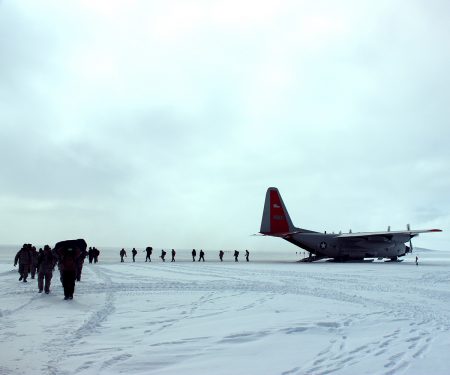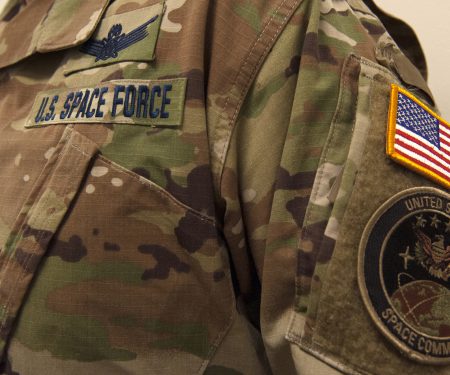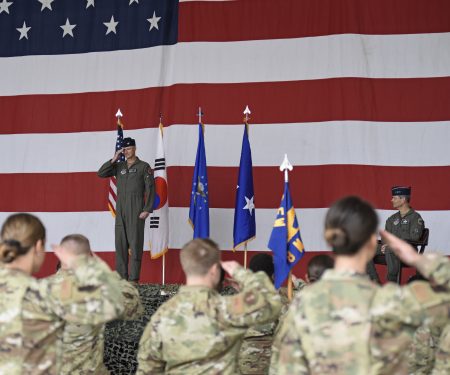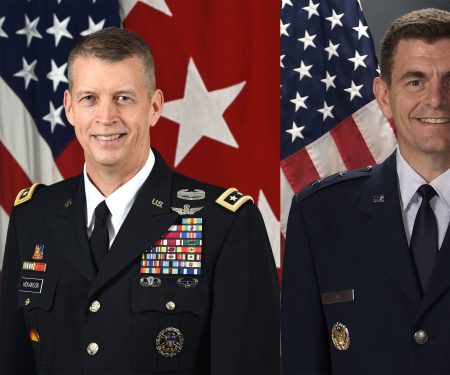Radar Sweep
Snapshot: DOD and COVID-19
Here's a look at how the Defense Department is being impacted by and responding to the COVID-19 pandemic.
Service Members Stuck by Travel Ban to Get Lease Relief Under New Law
An amendment to the Servicemembers Civil Relief Act, or SCRA, will allow service members to end a residential lease they've entered into at a new location if they have been—or continue to be—affected by the Pentagon's stop movement order.
Pentagon Legislative Chief Calls It Quits
The Defense Department’s top legislative official will leave the agency on July 24, two officials familiar with the matter told Foreign Policy, matching the Trump administration’s record for civilian vacancies as the White House scrambles to get more nominees through confirmation.
In Memos to Force, Esper Issues Directions on Operational Security
U.S. Defense Secretary Mark T. Esper has released a pair of memos to the Defense Department, outlining concerns about operational security and issuing new guidance on dealing with the media.
Goldfein Hopes for ‘Gold-Star Transition’ to Next CSAF Brown
With just a few weeks left in uniform, Chief of Staff Gen. David L. Goldfein is preparing to hand the reins to his successor, Gen. Charles Q. Brown Jr., in what he hopes will be a “gold-star” transition.
OPINION: China's Military Capabilities Are Gaining on the US. The Pentagon Needs to Take Bold Steps.
“To prevent conflict, the United States must maintain the military capability to deter China by demonstrating the ability to deny the success of such aggression or impose costs so high that Beijing steps back from the brink,” write Michèle A. Flournoy, former undersecretary of defense for policy, and Gabrielle Chefitz, senior associate at WestExec Advisors. “The problem is this: If the Pentagon's own reported war games and analysis are to be believed, the current force may well be insufficient to deter or defeat Chinese aggression in the future.”
F-15 Eagle Seen Loaded With Loyal Wingman Drone For Previously Unknown Tests
F-15s carrying loyal wingmen into the fight is a fascinating proposition, but what these tests could be for beyond that is even more intriguing.
From ‘Mad Hatter’ to ‘Torque:’ Kessel Run Makes Software for F-22, CV-22
Jumping off lessons learned in the ‘Mad Hatter’ effort to help fix the F-35’s infamous ALIS system, the Air Force’s Kessel Run software ‘factory’ now is working to improve maintenance tools for the F-22 stealth jet and the CV-22 Special Operations tiltrotor.
Post-Merger, Raytheon Intel & Space Sees Role Gluing Together JADC2
Raytheon’s newly constituted Intelligence & Space unit is positioning itself as a provider of the “glue” needed to hold together future systems of systems, such as those supporting all-domain operations, explains President Roy Azevedo.
Florida Nominates Pinellas, Hillsborough, 6 Other Locations for Space Command Headquarters
The Air Force’s Space Command is looking for a new home. Eight Florida communities want the new headquarters and have submitted bids. In total, 54 communities nationwide are vying to host the location, which promises new jobs and economic development in host communities.
OPINION: The US Needs to Take Action to Deter Near-Peer Rivals in Space
“Looking ahead, it is prudent military planning to anticipate that our vital space-based infrastructure will be targeted in future conflicts,” write former U.S. Strategic Command boss and retired USAF Gen. Kevin P. Chilton and former Air Force Space Command boss and retired USAF Gen. William Shelton. “To deter these attacks and, if necessary, defeat them, the United States must develop and field both offensive and defensive capabilities that will make it clear to Russia and China that we will prevail in any conflict that extends into the space domain.”
US and China to Launch Mars Missions, Vying for Space Supremacy
The rivalry between the U.S. and China assumes cosmic proportions this month, as both countries prepare to send spacecraft to Mars within days of each other.
Air Force Wants a Wearable Performance Tracker to Prevent Neck and Back Pain
The Air Force revealed intentions to purchase a wrist-worn gadget that captures data about wearers’ health—and provides individual and team analyses from that data—to address neck and back strains felt by fighter aircrew abroad.






